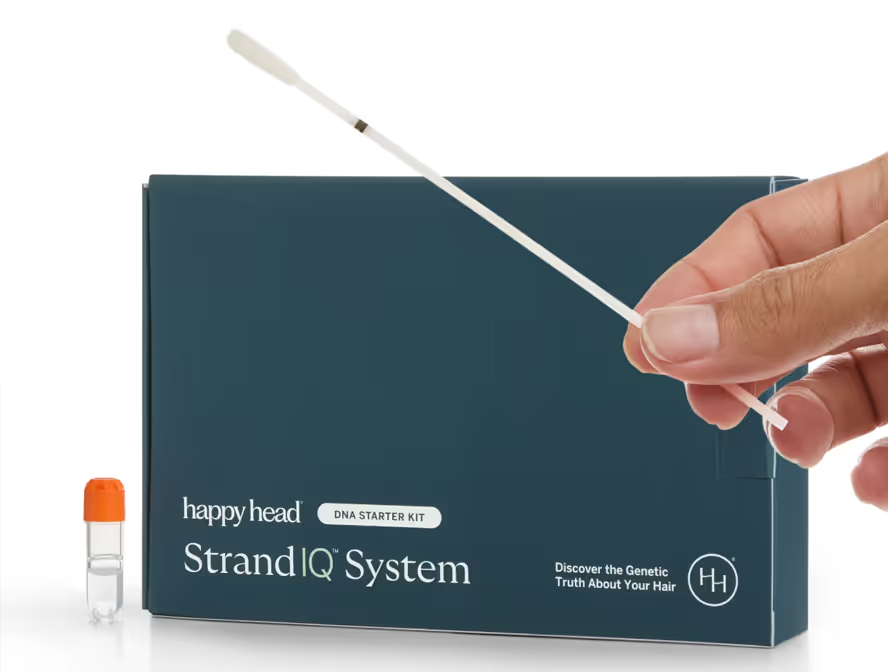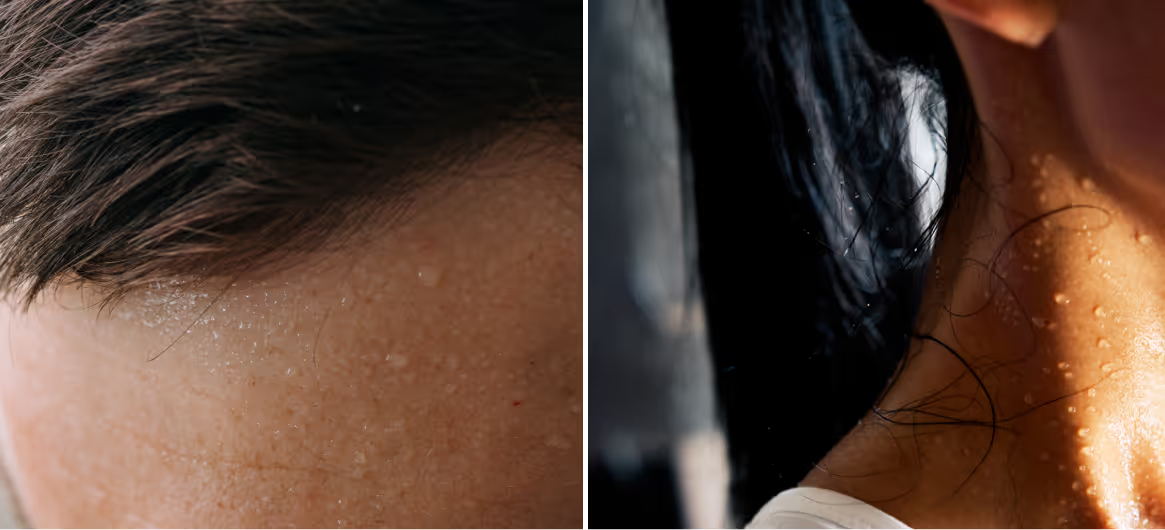Can depression cause hair loss? Yes, depression can directly cause hair loss through changes in hormones or body function and indirectly through behaviors or medications associated with depression.
Hair loss tied to depression can be temporary or prolonged, depending on the cause and whether it’s addressed early.
In this guide, we’ll explore how depression affects your hair, what treatments are available, when to seek medical help, and how to support both your mental health and hair recovery.
How Depression and Hair Loss Are Connected
Depression can affect the body in complex ways, and hair health is no exception.
The connection between depression and hair loss is both emotional and physiological, involving hormonal imbalances, inflammation, and behavioral changes that can interfere with the natural hair growth cycle.
Understanding how these elements interact can help patients recognize the root cause of their hair loss and seek appropriate treatment.
Understanding the Emotional Cause of Hair Loss
Depression often brings significant emotional distress that can indirectly contribute to hair loss.
When someone is experiencing depressive symptoms such as hopelessness, fatigue, or low motivation, it can lead to self-neglect. This may include poor nutrition, lack of sleep, or abandoning regular hygiene routines—all of which can impair scalp and follicle health.
Depression can also increase the perception of hair thinning or loss, even when changes are minimal, due to heightened sensitivity to physical appearance. Emotional distress can trigger or worsen conditions such as trichotillomania, a compulsive hair-pulling disorder.
While emotional causes of hair loss are often reversible, they require a combination of psychological and dermatological interventions to restore both mental well-being and hair health.
Physical Effects of Depression on Hair
Depression affects the body physically, not just mentally. It can disrupt the endocrine system, leading to imbalances in cortisol, thyroid hormones, and other chemicals that regulate the hair growth cycle.
Prolonged elevated cortisol levels, which are common with chronic stress and depression, can prematurely push hair follicles from the growth phase (anagen) into the shedding phase (telogen), a process known as telogen effluvium.
Additionally, depression often leads to poor appetite or nutritional deficiencies, particularly in protein, iron, and B vitamins, which are critical for healthy hair. Sleep disturbances and systemic inflammation associated with depression can also interfere with follicle regeneration.
These physical changes can take weeks or months to manifest, making the connection between depression and hair loss easy to overlook.
Can Stress Cause Hair Loss?
Yes, stress can cause hair loss, especially when it is chronic or intense.
One of the most common types of hair loss is telogen effluvium, in which significant emotional or physical stress causes a large number of hair follicles to enter the resting phase prematurely. This typically leads to noticeable shedding about two to three months after the stressful event.
Stress may also exacerbate autoimmune conditions such as alopecia areata, where the immune system attacks hair follicles. Additionally, high stress levels increase cortisol, which can disrupt hormonal balance and affect the hair growth cycle.
Fortunately, hair loss due to stress is often temporary, and regrowth can occur once the underlying stressor is managed and hormone levels normalize.
Can Anxiety Cause Hair Loss?
Anxiety, like depression, can disrupt the hair growth cycle in several ways. Chronic anxiety keeps the body in a heightened state of alert, which increases cortisol production and inflammatory markers that may negatively affect hair follicles.
People with anxiety may also develop hair-pulling behaviors such as trichotillomania or neglect basic self-care practices, both of which can contribute to hair thinning and breakage.
Additionally, anxiety often coexists with sleep disturbances and appetite changes, both of which reduce the body's ability to nourish growing hair.
While occasional worry is unlikely to cause lasting damage, persistent anxiety can lead to noticeable hair loss if not addressed through mental health treatment and supportive dermatologic care.
Can Hair Loss Cause Depression?
Hair loss can have a profound emotional impact, particularly when it affects self-esteem, social confidence, or personal identity.
For some individuals, especially those already vulnerable to mood disorders, visible hair thinning can trigger or worsen depressive symptoms. This is especially true if hair loss is sudden, unexplained, or perceived as a sign of aging or illness.
The psychological toll may include feelings of embarrassment, shame, or isolation, which can lead to avoidance of social situations or even clinical depression.
In such cases, treating the emotional impact of hair loss is just as important as addressing the physical cause. A dual approach involving both dermatological care and psychological support often yields the best results.
Medications for Depression: Their Effect on Hair
Some antidepressants can contribute to hair loss as a side effect, though this reaction is relatively uncommon and often temporary.
Selective serotonin reuptake inhibitors (SSRIs) such as fluoxetine (Prozac) and sertraline (Zoloft), as well as tricyclic antidepressants and mood stabilizers, have all been associated with a type of shedding known as telogen effluvium.
This condition typically occurs within the first few months of starting or changing a medication and is usually reversible once the body adjusts or the drug is discontinued.
If a patient notices increased shedding after beginning an antidepressant, they should not stop the medication abruptly but instead consult both their prescribing physician and a dermatologist to evaluate alternatives.
Additional Ways Depression Affects Your Body
Depression impacts far more than mood. It can disrupt nearly every system in the body. Chronic depression is linked to increased inflammation, elevated cortisol levels, and imbalances in neurotransmitters, all of which can impair immune function and metabolic processes.
It may also slow digestion, weaken cardiovascular health, and interfere with reproductive hormone balance. Many people with depression experience fatigue, sleep disturbances, chronic pain, and appetite changes, which can lead to weight fluctuations and nutritional deficiencies.
Over time, these effects contribute to physical decline and increase the risk of comorbid conditions such as diabetes or heart disease. Comprehensive medical and mental health care is critically important and should not be overlooked.
Other Common Causes of Hair Loss
While depression can certainly contribute to hair loss, it’s important to consider other potential causes of hair loss to ensure proper diagnosis and treatment. Hair loss is often the result of multiple overlapping factors, including:
- Genetics: Androgenetic alopecia (male or female pattern hair loss) is the most common cause and often runs in families.
- Hormonal Changes: Pregnancy, menopause, thyroid disorders, and polycystic ovary syndrome (PCOS) can all disrupt hair growth.
- Nutritional Deficiencies: Low levels of iron, vitamin D, protein, or B vitamins can impair follicle function.
- Autoimmune Disorders: Conditions such as alopecia areata cause the immune system to attack hair follicles.
- Medications: Chemotherapy, blood thinners, beta blockers, and retinoids can cause shedding.
- Harsh Hair Treatments: Frequent heat styling, bleaching, or tight hairstyles can lead to breakage or traction alopecia.
When To See a Doctor for Hair Loss and Depression
See your dermatologist if hair loss is sudden, severe, patchy, or persists for more than a few months. If you're also experiencing symptoms of depression—such as persistent sadness, fatigue, or changes in sleep or appetite—seek medical attention promptly.
A coordinated approach between a dermatologist and mental health provider can ensure accurate diagnosis and effective, holistic treatment.
Finding Support
Coping with both hair loss and depression can be overwhelming, but you don’t have to handle it alone. Emotional and medical support can make a meaningful difference in both your mental health and hair recovery.
Addressing both challenges together can help improve treatment outcomes and restore a sense of confidence and control.
Managing Depression To Improve Hair Health
Effectively managing depression can reduce stress-related hair loss and improve overall wellness. Therapy, medication, exercise, and good sleep hygiene all help regulate cortisol and other hormones that impact the hair cycle.
A mental health professional can provide tailored strategies to stabilize mood, while a dermatologist can monitor your scalp health and guide you through treatment options during recovery.
Addressing Emotional Impacts of Hair Loss
Hair loss can deeply affect self-esteem, identity, and social confidence. Speaking with a therapist can help you process these feelings and build healthy coping strategies.
Support groups, online or in person, offer reassurance and provide a sense of community. Talking openly with loved ones also reduces isolation, helping you maintain emotional balance while addressing the physical aspects of hair loss.
Treatment Options for Hair Loss
Treating hair loss effectively requires identifying the underlying cause and choosing therapies that support long-term regrowth and scalp health. A combination of medical treatments, lifestyle changes, and professional guidance often yields the best results.
- Minoxidil: Available over the counter or by prescription, minoxidil is widely used to prolong the growth phase of hair follicles.
- Finasteride and Dutasteride: These are prescription DHT blockers for male-pattern hair loss; finasteride is commonly used, but dutasteride is considered more potent.
- Spironolactone: This is a prescription medication for women with hormonal hair loss that works by blocking androgen receptors.
- Platelet-Rich Plasma Therapy (PRP): This involves injections that stimulate follicles using growth factors from your own blood.
- Low-Level Laser Therapy: LLLT uses light energy to stimulate cellular activity and increase hair density. Treatments can be done in-office or at home with special helmets.
- Hair Transplant Surgery: Surgery is suitable for advanced cases with stable donor areas.
- Dietary Improvements: Ensuring proper nutrition and adequate intake of protein, iron, and B vitamins supports healthy growth.
- Lifestyle Changes: Stress reduction, better sleep, and consistent scalp care promote overall follicle health.
Can Depression Cause Hair Loss? The Bottom Line
Hair loss and depression are often closely intertwined, with each capable of influencing the other in complex ways. Whether through hormonal shifts, nutritional deficiencies, or emotional distress, depression can significantly impact hair health.
Fortunately, with the right combination of medical treatment and emotional support, recovery is possible. Although the answer to the question “Can depression cause hair loss?” is yes, with help, both conditions can be effectively managed and improved.
Talk to a board-certified dermatologist to discuss your goals and find the solution that is best for you.
Frequently Asked Questions
Can depression cause hair loss?
Yes, depression can contribute to hair loss through hormonal changes, chronic stress, nutritional deficiencies, and side effects of certain medications. Hair loss related to depression is often temporary but can be distressing without proper support and treatment.
How can I prevent hair loss due to stress and depression?
Managing stress through therapy, exercise, sleep, and mindfulness techniques can help. Eating a nutrient-rich diet and treating any underlying depression are also important. If hair loss persists, consult a dermatologist for targeted care and possible medical treatments.
Is hair loss from depression reversible?
In many cases, yes. Once depression is treated and the body’s stress response stabilizes, hair can begin to regrow. This process may take several months. Early intervention and consistent care from a dermatologist and mental health professional are key to recovery.
What other factors can contribute to hair loss?
Hair loss can result from hormonal changes, nutritional deficiencies, autoimmune diseases, thyroid disorders, genetics, medications, and harsh hair care practices. Identifying the specific cause is essential for selecting the most effective treatment plan.









